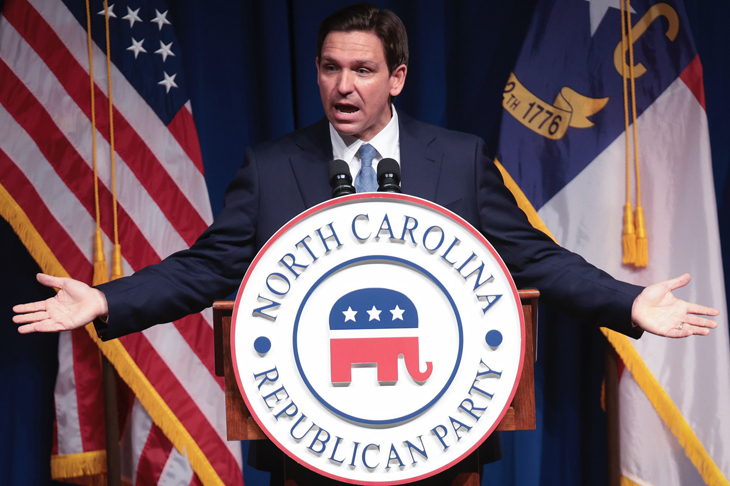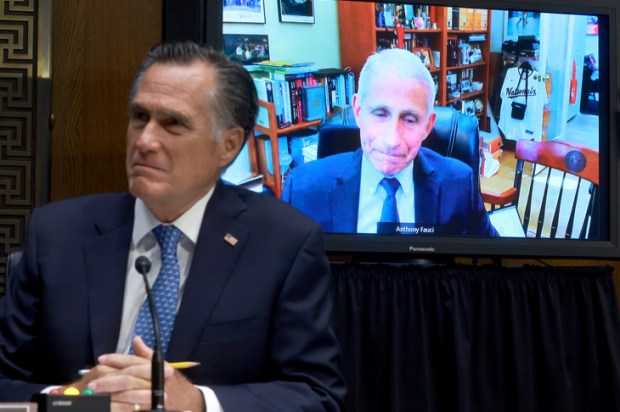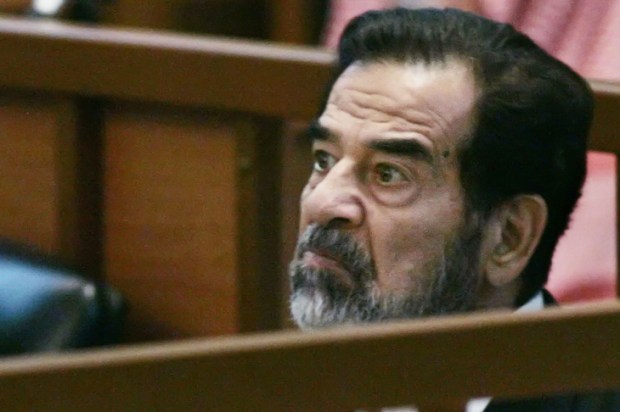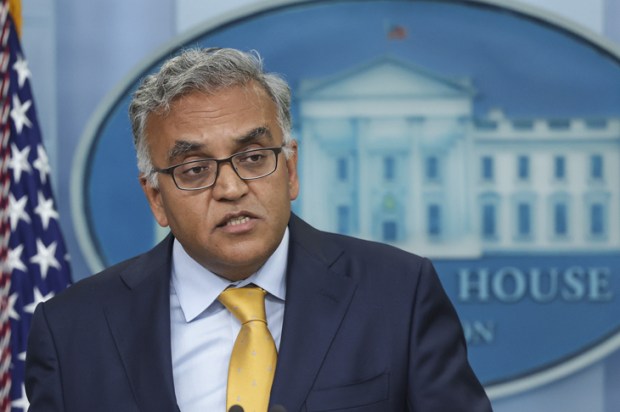Karl Rove made my day by writing in a recent Wall Street Journal column that Biden and Trump could both lose. We stand at a Covid cross-roads. On one side, there is by now a wealth of studies demonstrating the negligible benefits of the key pandemic interventions. In May the US finally ended its ban on unvaccinated foreigners’ entry into the country. A study by Kevin Bardosch looked at 600 publications using a ‘harm framework’ to conclude that ‘the collateral damage of the pandemic response was substantial, wide-ranging and will leave behind a legacy of harm for hundreds of millions of people in the years ahead’, exactly as many of us warned from the beginning. In June a major peer-reviewed meta-analysis of 20,000 studies from the Institute of Economic Affairs by US, Swedish and Danish researchers concluded that, regarding stringent lockdowns, in the words of co-author Steve Hanke, ‘the lives saved were a drop in the bucket compared to the staggering collateral costs imposed’.
On the other hand, there remain many disquieting indicators of the continuing hold that the failed and discredited narratives have on policymakers and publics to suggest that the insanity could be repeated at short notice. For example, Biden’s pick as the new CDC director, Mandy Cohen, is a lockdown, mask and vaccine fanatic. On 14 August 2020 she tweeted a photo of herself wearing a mask imprinted with a portrait of the execrable Anthony Fauci. Many of the worst offenders on lockdown, masks and vaccines have been honoured with gongs while the likes of Oxford University’s Carl Heneghan and Stanford’s Jay Bhattacharya were monitored by the government’s Counter-Disinformation Unit and heavily censored on social media. Governments remain stubbornly resistant to investigating the concerning phenomenon of excess deaths. The WHO and the European Commission have launched a digital health initiative for creating global vaccine passports. The WHO effort at expanded powers to rule over the world through a new treaty and/or amended international health regulations remains on track.
President Dwight Eisenhower’s warning, in his farewell address of 17 January 1961, of ‘the military-industrial complex’ is one of the most quoted phrases of any US president. In the same speech, he also warned of another danger: ‘The prospect of domination of the nation’s scholars by Federal employment, project allocations, and the power of money’ such that ‘public policy could… become the captive of a scientific-technological elite’. The lens of how various leaders managed the pandemic therefore helps us to frame the contest in terms of their respective culpability in enabling and facilitating the grave attacks on freedoms, versus their capacity and willingness to resist and reverse the blanket of authoritarianism that has suffocated liberal democracies since 2020. Because of the dominant influence of America on the rest of the democratic world, the US presidential contest has unique global resonance. Lord Sumption, the former UK Supreme Court justice, said in May 2020 that ‘the lockdown is without doubt the greatest interference with personal liberty in our history’. On 18 May US Supreme Court Justice Neil Gorsuch echoed Sumption: ‘Since March 2020, we may have experienced the greatest intrusions on civil liberties in the peacetime history of this country’. In this perspective, the ideal Republican and Democratic champions would be Ron DeSantis and Robert F. Kennedy Jr. No one else comes close in the two parties to their record in forceful opposition to lockdowns, masks and vaccines. For them to triumph in the primaries would mean the campaign will be a referendum on Covid, the resistance heroes win the public debate, and the new president has a clear mandate to revert to pre-Covid normality. At present both are miles behind the two front-runners Trump and Biden in the RealClearPolitics poll of polls and betting averages. However, both DeSantis and Kennedy are well clear of other candidates. Considering both have only recently declared, this is an impressive solid base on which to build.
Democrats have been unsettled by the high profile and surging support for Kennedy. On many character and judgment attributes, voters rate Kennedy higher than Biden. In the Echelon poll in May Kennedy scored a massive 40 per cent net favourability advantage over Biden. Little wonder Republican political consultant Douglas MacKinnon believes that Kennedy will be the Democratic nominee. Of course, the media continues to smear Kennedy for kooky conspiracy theories even as many have come true. But he has name recognition, speaks with passion and gravitas and as an experienced trial lawyer, has good debating skills.
In DeSantis, Trump faces the most successful, best funded and best prepared intra-party opponent of his political career. DeSantis gained national profile for turning a marginal victory in 2018 into a landslide in 2022, colouring America’s biggest swing state from rosé to ruby red. Many Americans applaud DeSantis for the fightback against the metastasising woke ideology. He famously declared ‘Florida is where woke goes to die’. Good leaders pick highly capable aides and work well with them over many years. Trump is notable for the rapid churn of most of his hand-picked senior aides. He demands total loyalty but gives none in return. For most of this year, the focus of Trump’s ire and schoolyard insults has been DeSantis. The Republican base loves DeSantis, if less than Trump, and reviles former New York governor Andrew Cuomo. In his desperation to wound DeSantis on Covid management, Trump has gone full-on Cuomosexual, besties with benefits. Because Cuomo is toxic among diehard Republicans, Trump risks damaging his own standing with them.
In a one-minute video rant, Trump accused Florida of having the third-worst Covid death rate in the US. ‘Even [former New York governor Andrew] Cuomo did better, he was number 4’. Put aside the fact that Trump himself moved to Florida. On the raw figures, the US national average is 352.5 Covid deaths per 100,000 people. Florida is tenth-worst with 412.1 deaths/100k and New York ranks 16 with 399.1 deaths/100k. But the CDC’s state-by-state analysis of age-adjusted Covid mortality (a more accurate mortality metric) gives the national average as 282.9. Florida ranks a lowly 36 among the 50 mainland states with 245.2 compared to New York’s 311.7 that put it at number 17. Trump’s instincts may have been libertarian but he allowed himself to be manipulated into policies that have produced disastrous consequences. DeSantis attacked Trump for turning over the country to Fauci in Match 2020 that ‘destroyed millions of peoples’ lives’.
Trump’s federal indictment on 9 June for holding classified documents throws a wrench into all calculations: will it derail his candidacy or solidify support in anger at the Democrats’ weaponisation of the criminal justice system?
Got something to add? Join the discussion and comment below.
Get 10 issues for just $10
Subscribe to The Spectator Australia today for the next 10 magazine issues, plus full online access, for just $10.
You might disagree with half of it, but you’ll enjoy reading all of it. Try your first month for free, then just $2 a week for the remainder of your first year.














Comments
Don't miss out
Join the conversation with other Spectator Australia readers. Subscribe to leave a comment.
SUBSCRIBEAlready a subscriber? Log in